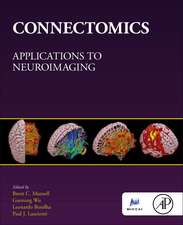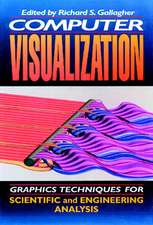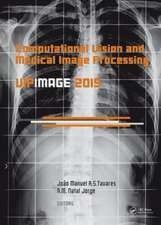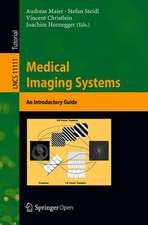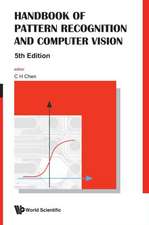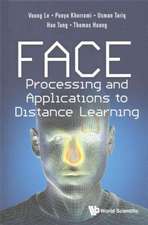Computer Vision: From Surfaces to 3D Objects
Editat de Christopher W. Tyleren Limba Engleză Hardback – 24 ian 2011
An Unprecedented Framework for Complex Object Representation
Presenting the material from both computational and neural implementation perspectives, the book covers novel analytic techniques for all levels of the surface representation problem. The cutting-edge contributions in this work run the gamut from the basic issue of the ground plane for surface estimation through mid-level analyses of surface segmentation processes to complex Riemannian space methods for representing and evaluating surfaces.
State-of-the-Art 3D Surface and Object Representation
This well-illustrated book takes a fresh look at the issue of 3D object representation. It provides a comprehensive survey of current approaches to the computational reconstruction of surface structure in the visual scene.
| Toate formatele și edițiile | Preț | Express |
|---|---|---|
| Paperback (1) | 357.45 lei 43-57 zile | |
| CRC Press – 18 oct 2019 | 357.45 lei 43-57 zile | |
| Hardback (1) | 598.84 lei 43-57 zile | |
| CRC Press – 24 ian 2011 | 598.84 lei 43-57 zile |
Preț: 598.84 lei
Preț vechi: 839.97 lei
-29% Nou
Puncte Express: 898
Preț estimativ în valută:
114.62€ • 124.55$ • 96.35£
114.62€ • 124.55$ • 96.35£
Carte tipărită la comandă
Livrare economică 21 aprilie-05 mai
Preluare comenzi: 021 569.72.76
Specificații
ISBN-13: 9781439817124
ISBN-10: 143981712X
Pagini: 292
Ilustrații: 91 b/w images, 1 table and 92
Dimensiuni: 156 x 234 x 20 mm
Greutate: 0.54 kg
Ediția:1
Editura: CRC Press
Colecția Chapman and Hall/CRC
ISBN-10: 143981712X
Pagini: 292
Ilustrații: 91 b/w images, 1 table and 92
Dimensiuni: 156 x 234 x 20 mm
Greutate: 0.54 kg
Ediția:1
Editura: CRC Press
Colecția Chapman and Hall/CRC
Public țintă
Professional Practice & DevelopmentCuprins
Introduction. Scene Statistics and 3D Surface Perception. The Theory of Swirling Fields: Segmenting a Scene into Surfaces. Mechanisms for Propagating Surface Information in 3D Reconstruction. 3D Surface Representation Using Ricci Flow. Cue Interpretation and Propagation: Flat versus Nonflat Visual Surfaces. Symmetry, Shape, Surfaces, and Objects. Noncommutative Field Theory in the Primary Visual Cortex. Contour-, Surface-, and Object-Related Coding in the Visual Cortex. From Surfaces to Objects: A Neuroanalytic Approach. 3D and Spatiotemporal Interpolation in Object and Surface Formation. The Perceptual Representation of 3D Shape. References. Index.
Notă biografică
Christopher W. Tyler is the director of the Brain Imaging Center at the Smith-Kettlewell Eye Research Institute. His current research encompasses brain imaging studies and mathematical modeling of the mechanisms of human stereoscopic depth, motion, and face perception as well as higher cognitive processing. He and his team have developed new methods to determine the dynamics of the neural population responses underlying brain imaging signals. By designing stimuli to probe specific neural sub-populations, this new methodology can be used to explore neural properties in the human brain and the changes in neural dynamics during the learning process.
Descriere
Computer Vision is the first book to take a full approach to the challenging issue of veridical 3D object representation. It introduces mathematical and conceptual advances that offer an unprecedented framework for analyzing the complex scene structure of the world. Leading theorists cover full 3D scene reconstruction, instead of the simplistic 2D planar algorithms employed in the past. They explore cutting-edge research on computational algorithms for scene analysis and present an integrated, complementary treatment of neural, behavioral, mathematical, and computational approaches. The text includes numerous graphics of complex processes, with many in color.

